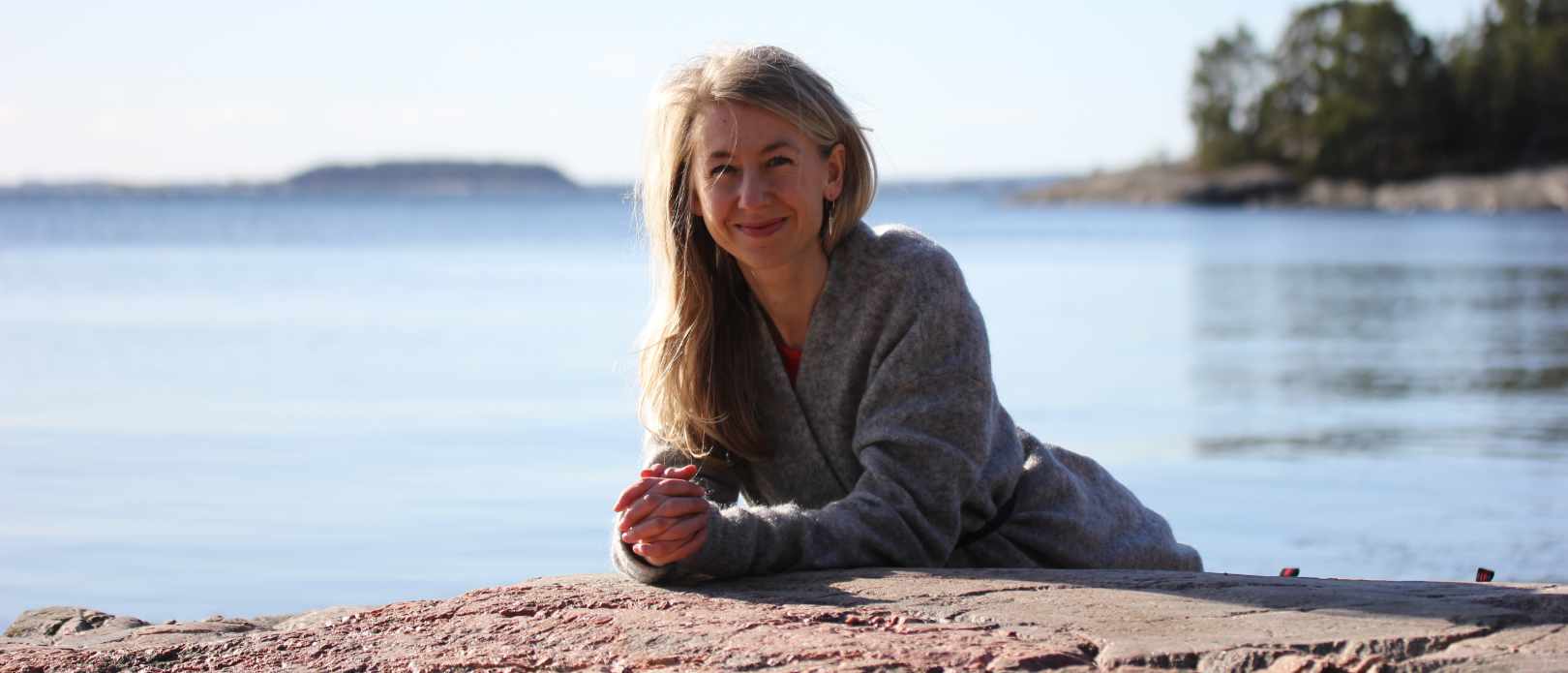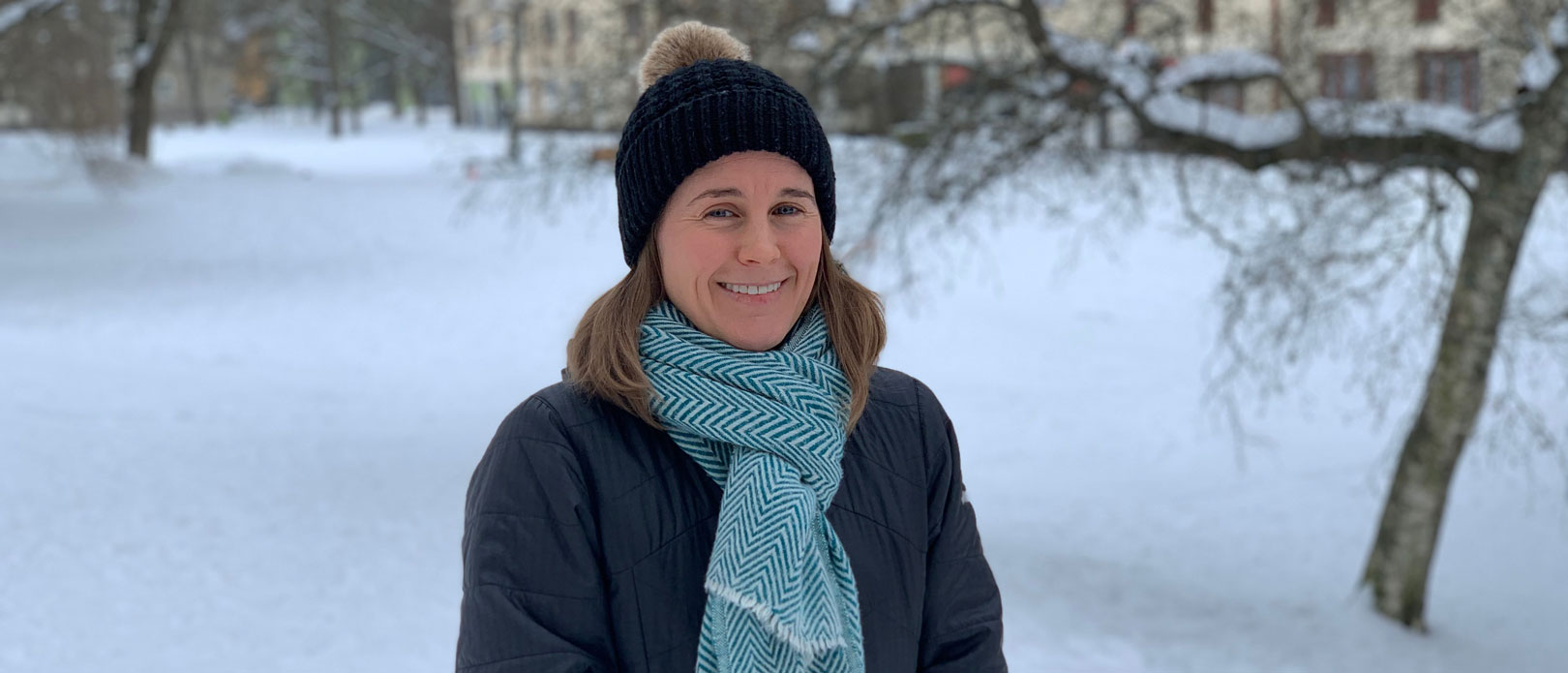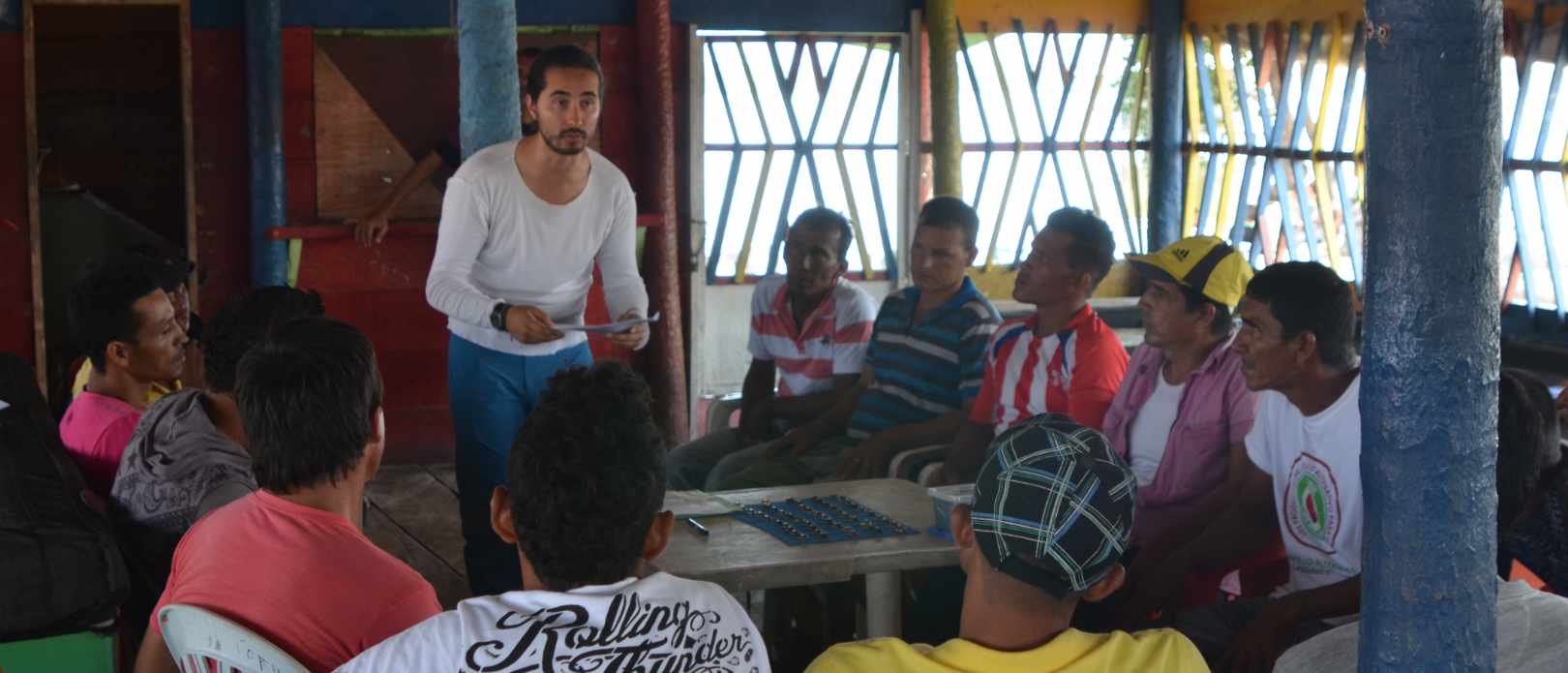RESEARCH PROFILES
Fixing the planet means starting with a good meal

Malin Jonell is one of the leaders of the centre's new research theme focusing on sustainable food systems. Seafood is a particular focus for Jonell. Photo: J. Gantelius
Malin Jonell explains why we need to work hard to dramatically change the food we put on our plates
- In 2020, the centre introduced new research themes to reflect a shift in the centre’s research focus
- One of the new theme leaders is Malin Jonell, who will co-lead the new Food for Resilience theme
- Jonell’s main research interest is the role of markets, trade and the private sector in driving positive change in the growing seafood sector
When it comes to food, we have a global health crisis running in parallel to an environmental crisis. A healthy, sustainable diet for both people and the planet will require dramatic changes to what we eat, how we eat it, as well as actors across the food system.
So how can we bring about the behavioural changes needed for this transformation, ensure the sustainability of up and coming food sources and innovations, and make sure this is all done in an equitable way?
We sit down with Malin Jonell, co-leader of the centre’s research theme Food for Resilience to find out. She tells us about the Blue Food Assessment and the potential of food from the ocean and freshwater environments, the centre’s strength of working with societal stakeholders, and why technological solutions are not always best.
First off, why is food so crucial in the global sustainability transformation?
More than 800 million people go to bed hungry each night, and at the same time a substantial proportion of the world’s population is eating calorie rich, nutrient poor food, leading to an explosion of obesity and non-communicable diseases like diabetes.
Then there is the planetary crisis.
Food systems are one of the biggest stressors of our ecosystems causing immense biodiversity loss, one of the biggest carbon emitters, and the biggest source of nutrient leakage. If we want to get it right for the planet we need to get it right for food.
There is hope. The EAT-Lancet Commission has shown us that it is possible to produce a healthy diet for the ten billion people who will be living on our planet in 2050 and still keep within the planetary boundaries. But we do need to work hard to dramatically change the types of food on our plates and the behaviour of actors in the food system, and reduce food loss and waste.
What got you interested in food?
Although I have a background in systems ecology, nowadays I see myself as an interdisciplinary sustainability scholar. How we produce and consume food really nicely ties nature and humans together, and shows how deeply dependent and embedded we are in the biosphere. It’s actually a really cool way to study social-ecological systems.
Food is also such a concrete, sensory way for each person on the planet to connect with nature every day.
When we eat our breakfast, we connect with worms in the soil, pollinators and all other creatures providing us with the ecosystem service of food production. I really like this idea.
Part of your work looks at behaviour change in food systems transformations. What kinds of questions most interest you?
I’m particularly interested in consumers and large market actors. Which mechanisms are effective in making consumers change their habits? And what is the role of value chain actors in influencing consumers to behave more sustainably?
We’re taking a deeper dive into these questions in the Mistra Food Futures programme. This is a four year programme led by the Swedish University of Agricultural Sciences and with SRC and RISE as partners. It’s looking at how we can make the Swedish food system more sustainable - environmentally, economically and socially.
We’re working on setting targets for the Swedish future food system and identifying barriers and pathways for change. As part of this we will use scenarios as methods to outline different ways forward for the Swedish food system. I am particularly involved in a work package on how we can actually bring about transformation through engaging with mid-value chain actors.
A large part of your work has focused on so-called "blue foods". What are they, and why are they so important for the future food system?
“Blue foods” - which is another name for aquatic foods - is one of the fastest growing food production systems in the world. They are by and large very healthy, but when it comes to the environmental side it’s a mixed bag.
For example, tropical shrimp farmed in former mangrove land - “coastal marine aquaculture” - has been associated in major social and environmental destruction over the last decades. On the other hand, algae and bivalves like mussels generally have a very low environmental impact, and sometimes can even have a positive impact in terms of ecosystem services and nutrient uptake. This means that if done right, they have enormous potential.
My personal interest has been how to improve blue food production and consumption systems.
I’ve been looking at the role of certifications and other market-based instruments for improving the aquaculture sector at the production level asking questions like “How much better is organic tropical shrimp for the environment?”.
You’ve helped set up the Blue Food Assessment. What is this?
The role of aquaculture and fisheries was not comprehensively represented in the findings of the EAT-Lancet Commission, so some of us involved had the idea to put this right and set up the Blue Food Assessment.
It’s a coalition of international researchers led by the Stockholm Resilience Centre, Stanford University and EAT working to put blue food at the centre of the global food policy agenda. We’re trying to both fill gaps in how we understand the role of blue foods, and promote change in the policies and practices that will shape the future of the food system.
Justice and equity and the role of small scale fisheries and aquaculture has become an important part of the assessment. Small holders contribute to a substantial proportion of global food production but are often left out of the discussion.
We’re aiming to have the Blue Food Assessment published in time for the UN Food Summit in fall 2021, so it can really make an impact.
What are the biggest challenges to your work?
The world needs to change rapidly - and we have to rebuild the aircraft while flying it, so to speak. I think this applies to everyone who works at the SRC, but for food this means completely redesigning and recomposing our food systems to be beneficial to both people and planet. It’s no easy task!
You’ve recently been appointed one of the leaders of the theme Food for Resilience. Congratulations! What does the theme have lined up?
The theme has three main focus areas. The first is the transdisciplinary approaches for systems transformations. This is crucial because working with a wide range of societal actors is key for achieving sustainability outcomes. Researchers can’t do it alone.
The second is focused on finding the right solutions. There is a bit of a tendency towards a technological fix. And although technological solutions do have a role play, often little is known about their rebound effects. We’re systematically exploring when it is or is not good to scale something up, trying to move beyond the Western high-end, technology-is-always-good perspective.
Lastly, we are looking at food system resilience and equity. Who is faring well and who isn’t in the current system, and how can we make it better for all? It’s something that has not been explored much in resilience theory, but as a group we think it's a crucial perspective that cannot be left out.
Where do you think the centre is best positioned to make a difference with its food systems research?
At this point we know enough about the direction we need to go, and there are other researchers doing this better than us anyway.
Our strength lies in the how - working with societal stakeholders to pave the way for a more sustainable and equitable food system. Throwing ourselves into these new transdisciplinary waters is challenging but very necessary.
I hope to lead this thematic area as a real solutions space, using the collective brain power and resilience lens to unpack promising food systems solutions.










